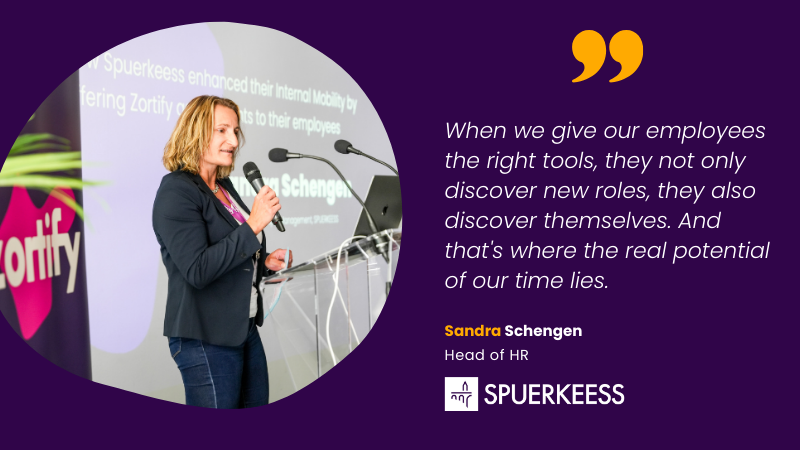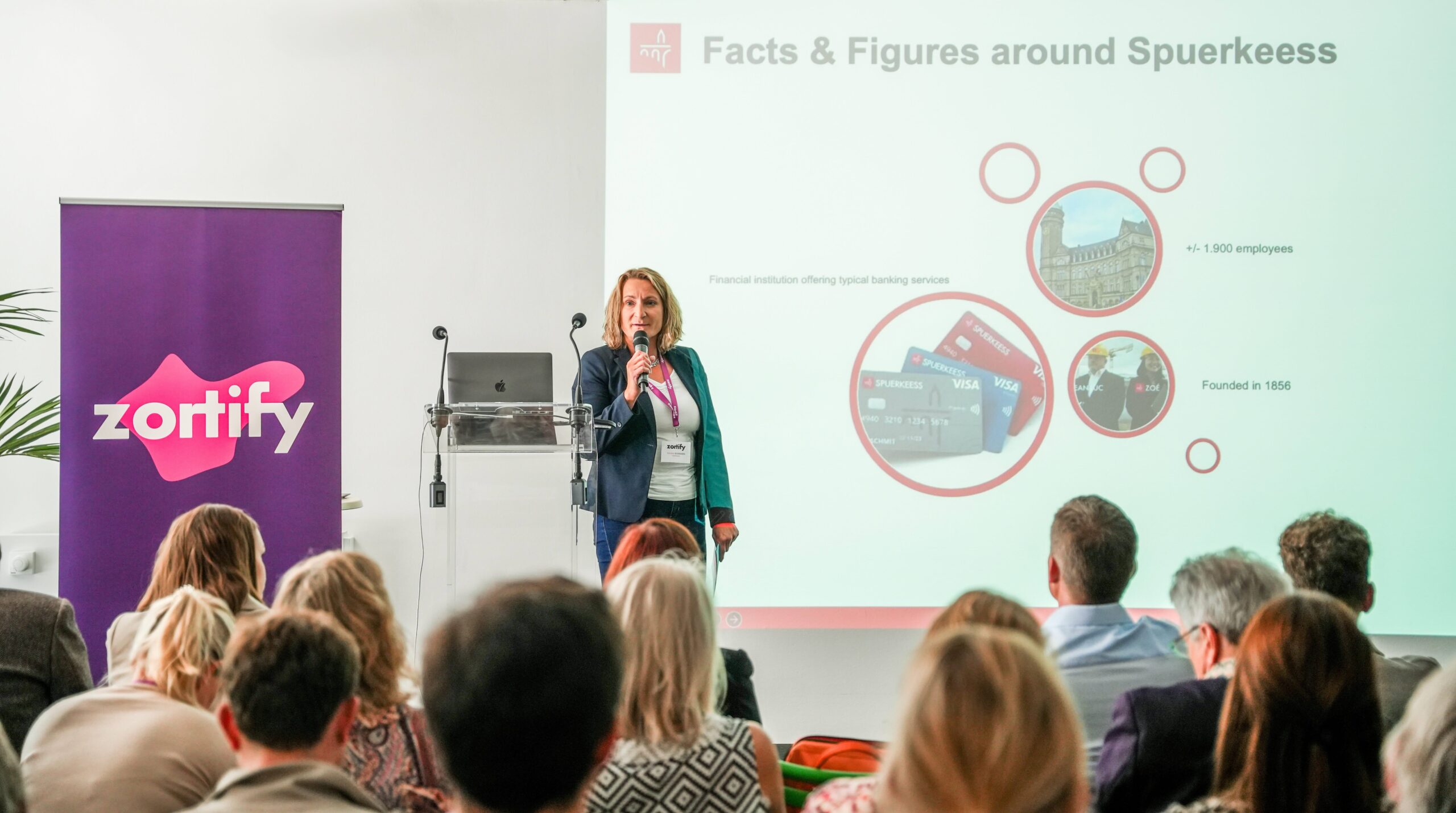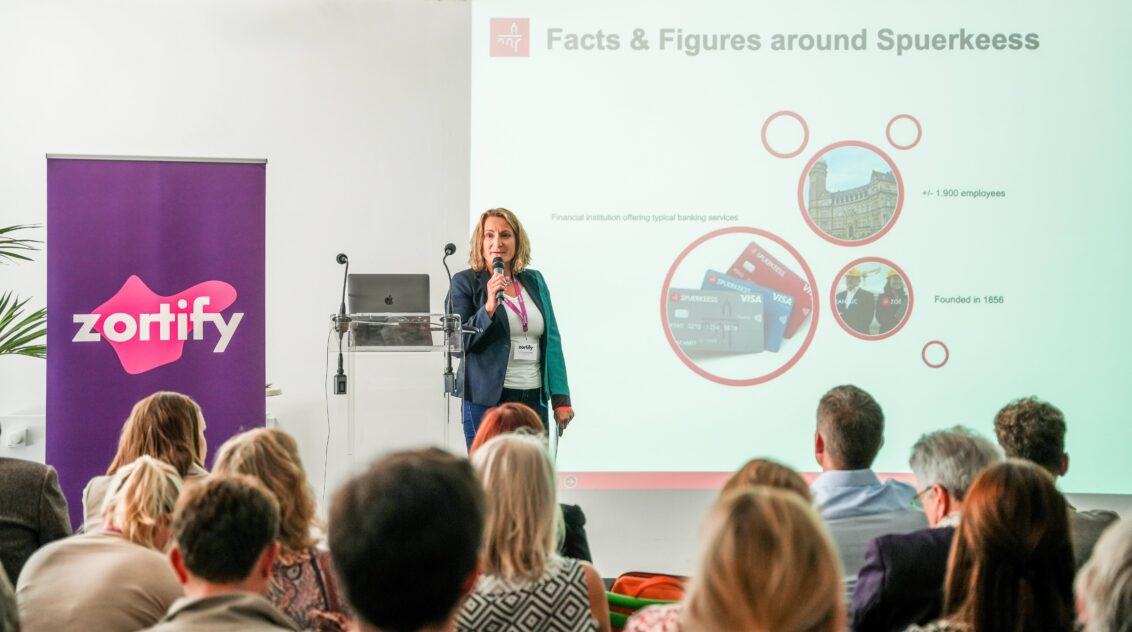Your Gut Feeling is Gutting Your Talent Pipeline
A New Way of Looking at HR Efficiency
We think we’re thorough. Our HR processes are well thought-out. Our hiring decisions are sound. Research says: We’re wrong.
The uncomfortable truth: our brain makes a judgment about our conversation partner in the first few seconds. Even if the final decision for or against an applicant is not made until minutes later, the course has already been set. The rest of the interview? – Simply a search for confirmation. We are not looking for the best candidate, but for reasons why our gut feeling is right.
No second chance to make a first impression? – There is!
The mantra “There is no second chance for a first impression” is not only wrong in recruiting, it is reckless. It justifies hasty gut decisions and superficial judgments. The fact is that first impressions are almost always incomplete and often irrelevant.
What happens in our heads in the first few seconds? We evaluate voice, appearance, handshake, eye contact – all things that have little or nothing to do with job performance. 48% of HR decision-makers openly admit that prejudices influence their decisions. Realistically, this figure is closer to 100%.
The next 30 minutes of the interview are therefore not much more than a stage for confirmation bias.
- The brilliant but introverted developer? “Not present enough.”
- The experienced executive with an accent? “Not a strong communicator.”
This is not an exception. This is the system. The pressure is real, as is the self-deception. Time-to-hire is tracked, jobs actually have to be filled yesterday, and we tell ourselves we are thorough. But we are not. Above all, we are thoroughly biased.
AI breaks the cycle
While we supposedly carefully screen applicants, modern AI analyzes hundreds of relevant personality traits in a focused, precise and objective manner within the very same time period. What our intuition compromises, AI perfects in milliseconds. It gives every candidate a real second chance. Based on data, not prejudice. While we search for confirmation, AI emotionlessly scans what really counts.
When humans reach their limits and machines shine
Our brains are still optimized for the Stone Age, i.e. for quick friend-foe recognition, not for differentiated HR decisions in a globalized knowledge society. Unconscious Bias is an evolutionary feature, not a bug that can just be fixed.
What AI can do in seconds:
- Analyze hundreds of personality dimensions
- Assessment without cultural bias
- Consistent standards for all applicants
- Prediction of job performance based on valid data
What people do in the same time:
“He seems likeable.”
“She doesn’t fit into the team.”
In short: we fall for our prejudices based on skin color, gender, accent or similarities between the applicant and our own CV. The “cultural fit” is often just a cover for these unconscious prejudices. Universities attended together, familiar names, similar biographies: all this acts as a filter. Unfortunately, it is the wrong one.
The question to CEOs: Would you invest like this?
Would you invest a million euros on gut feeling? Without data, without analysis, without risk assessment?
No?
So why do you make the most important business decision – the one about your staff – like an impulse purchase? Every bad hire costs you 1.5 to 3 times the annual salary. In the case of managers, it can quickly add up to over €200,000 per mistake. Human intuition” is the most expensive poor decision your company makes. You invest six-figure amounts in employer branding, while your selection process scares top talent away. Rejected applicants talk to each other. Bad experiences go viral – and cost you the next generation of talent.
AI does not make us unemployed, it makes us better.
AI does not replace people. It replaces bad human decisions. A good AI analyzes more data in seconds than we humans do in an entire conversation. Not because it is smarter, but because it is not distracted. Modern AI-supported diagnostics filter precisely, efficiently and objectively. NLP technology recognizes personality patterns and skills while we are still thinking about whether the handshake was firm enough. The game changer: when AI makes the pre-selection, we are no longer evaluating “a person”, but “a promising candidate who has already been objectively assessed”. Our bias no longer has a chance to shape the conversation from second one.
Strategies for the AI-supported revolution in recruitment
The human touch is out of place in recruiting. The new generation of applicants expect fairness, not folklore. They want to be evaluated for what they can do, not for how familiar they seem to us. Companies with AI-supported recruiting will therefore systematically attract the better talent.
Here’s how you can get started:
- Objective data instead of subjective impressions: Define measurable criteria for each role. Let AI evaluate before humans decide.
- Intelligent pre-selection = efficiency: Use AI for initial, data-based filtering. Then you can concentrate 100% on the really promising candidates. This way, you combine machine precision with human judgment. The process is quick and thorough.
- Feedback loops: Measure the success of your hires after six months. Which of your gut decisions has proven successful? (The truth might hurt).
- Diversity by design: Integrate fairness directly into the process. Good AI is not neutral, it is intentionally inclusive. Choose providers wisely. To the checklist
The moment of truth
We have two options:
Option 1: Carry on as before. Convince ourselves that 30 years of recruiting experience is more objective than data-based analysis. Watch systematic bias cost our team millions and drive the best talent to the competition.
Option 2: Gather the courage to recognize our own limitations and use AI for what it is: a tool that does in seconds what humans overlook in minutes. Objective pre-selection that gives every candidate the fair chance he or she deserves.
The decision is up to us. But if we now make it based on gut feeling again, we have not yet understood this text.
If your CHRO is still counting heads, you’re already losing the best ones!
The figures are clear – and alarming: while IT and marketing are allocated 3.14% and 7.5% of turnover each, HR receives a mere 0.8% on average. This is shown by the current Gartner study “2025 CHRO Budget Benchmarks”.
EU AI Act – HR Must Deliver on AI – But Not Alone
As the possibilities of AI grow, so do the requirements for the careful and responsible use of AI systems. The EU AI Act, which has been gradually coming into force since February of this year, places greater responsibility on companies and makes AI expertise not just a competitive advantage, but a legal obligation.
“We don’t just invest in technology – we invest in our people.”
Sandra, Spuerkeess is known for stability and tradition. At the same time, you focus heavily on innovation in your HR strategy. What was the reason for rethinking the topic of internal mobility?
Spuerkeess has always successfully adapted to changing market conditions.
If your CHRO is still counting heads, you’re already losing the best ones!
A New Way of Looking at HR Efficiency
The figures are clear – and alarming: While IT and Marketing are allocated 3.14% and 7.5% of turnover, HR receives a mere 0.8% on average. This is shown by the current Gartner study “2025 CHRO Budget Benchmarks”. At the same time, one HR FTE (Full Time Equivalent) looks after an average of 58 employees, with increasing demands in recruiting, development, digitalization and cultural transformation. Having said that, a third of companies are planning to cut their HR budget further in 2025 – despite a growing pressure to take action.
The crucial question is therefore no longer just how much HR companies can afford, but in what and in whom they invest.
- In more staff or better technology?
- In processes or in skills?
- In administration or in value creation?
Those who make the wrong budget decisions today not only risk operational weaknesses but also miss the opportunity to position HR as a real lever for business success.
Why quantity masks true HR performance
When we talk about HR budgets, the aforementioned key figure “employees per HR FTE” plays a key role. How many employees an HR specialist is responsible for full-time is considered an indicator of the productivity of the HR department. The Gartner study shows significant differences between industries. While the ratio is 80 employees per HR FTE in the healthcare and pharmaceutical sectors, for example, it is 56 in technology and telecommunications and 59 in finance.
A high ratio of employees per FTE is not necessarily negative from a business and cost perspective. Rather, it can indicate an increased need for specialized HR support or complex processes. Conversely, a supposedly “efficient” HR department with many employees per HR manager can cause high costs in the long term – for example due to bad hirings or above-average staff turnover, which in the worst case can cost up to two years’ salary.
What the key figures do not show
HR is also a strategic partner for business development, especially in highly knowledge based industries. Investments in talent analytics, employer branding or strategic HR planning are essential, but are not directly reflected in key figures such as the FTE ratio. Nevertheless, their value is enormous. The Deloitte study Human Capital Trends 2024 emphasizes that HR must increasingly act as a “change activist”, for example in cultural change, leadership development or the integration of AI. At the same time, many HR teams are struggling with a chronic shortage of resources and overwork, which is slowing down strategic work.
The role of AI: a leap in quality instead of an increase in HR staff
Increasing demands, decreasing budgets – this is where the strategic use of technology comes into play. The Gartner study emphasizes that HR leaders are increasingly investing in HR technologies. AI systems in particular offer the opportunity to significantly improve the quality of HR work without having to increase the number of staff in the HR department. AI-supported tools improve precision in recruiting, for example by identifying the best candidates for complex roles and sorting out unsuitable applicants at an early stage. AI helps to reduce bias, i.e. decisions that are based on subjective assessments rather than objective data.
A fair, fast and data-supported selection process is particularly important in one of the most cost-intensive areas of HR – recruiting. Assessment centers alone often consume tens of thousands of euros and tie up capacities that are then missing for strategic tasks such as workforce planning or employee development. What many people tend to overlook: The employee experience does not end with onboarding. It has a significant influence on whether talent stays in the long term.
Maintain quantity, increase quality
According to Gartner, 34% of CHROs are planning to invest in HR technology and 28% in people analytics. These priorities are right – under one condition: The tools must support HR employees instead of replacing them.
Ideally, they enable:
- The replacement of time-consuming and expensive assessment centers with automated, data-based and fast selection processes,
- More objective and accurate decisions about candidates thanks to well-conducted analyses,
- New scope for HR to install strategic and long-term workforce planning.
Conclusion: Focus on the impact, not just KPIs
KPIs such as “employees per HR FTE” can be a useful starting point, but they alone are not enough to evaluate the effectiveness and efficiency of HR. In demanding industries, the focus must be on the quality of HR work. The strategic use of AI can help to improve recruiting quality, reduce the workload of executives and thus make a measurable contribution to the company’s success, regardless of whether the FTE ratio is above or below the industry average. Ultimately, it is not only how many employees a HR professional is responsible for that counts, but rather how well they support employees and promote their development. And whether they have the capacity to shape their work with a long-term perspective instead of rushing from one short-term vacancy to the next. The systematic use of AI can make all the difference here.
Modern HR work should aim to attract and develop excellent employees through a well-founded strategy and excellent processes, without necessarily building up more HR resources. The focus should be on what good HRM really needs: AI-competent, strategically thinking and empathetic people who have enough headspace to understand and master technology and use it to recognize and develop the full potential of (potential) employees.
Putting people at the center with AI
With a bold, technology-supported approach to internal mobility and people development, the bank Spuerkeess is setting new standards in employee retention. At the heart of this is an HR initiative that has not only changed processes, but also created a new culture.
EU AI Act – HR Must Deliver on AI – But Not Alone
As the possibilities of AI grow, so do the requirements for the careful and responsible use of AI systems. The EU AI Act, which has been gradually coming into force since February of this year, places greater responsibility on companies and makes AI expertise not just a competitive advantage, but a legal obligation.
What companies would never learn about their employees without AI
What really motivates employees? – This question is more relevant today than ever, especially in industries such as consulting and financial services, which rely on trust, expertise and personal relationships and are also under high pressure to innovate.
EU AI Act
HR Must Deliver on AI – But Not Alone
As the possibilities of AI grow, so do the requirements for the careful and responsible use of AI systems. The EU AI Act, which has been gradually coming into force since February of this year, places greater responsibility on companies. And makes AI expertise not just a competitive advantage, but a legal obligation.
Doubts about AI expertise in the HR sector
According to a recent Gartner study, CEOs have massive doubts about the AI skills of their management teams: although 77% of CEOs are convinced that artificial intelligence is fundamentally changing the economy, they lack confidence in the ability of their top managers to shape this change.
Most affected: HR management and HR teams. Less than one in ten CEOs trust their CHROs to have sufficient expertise to make informed HR decisions with AI. This means that the very department that has a direct influence on people and their career paths. And therefore on the long-term success of the company – is at risk of being left behind. Because one thing is also clear: AI is here to stay. Companies that know how to use it properly will achieve massive efficiency gains and thus competitive advantages.
Does HR need to be able to decrypt code?
No, of course not. HR work will remain human-centered in the future. The use of AI systems helps HR to focus even more on individual people and their further development within the organization. And on the development of their own strategic role in the company.
So why is AI expertise in HRM so crucial?
- Anyone who understands how AI algorithms work can better interpret their results, for example with regard to the evaluation of certain candidates, recognize possible biases and make informed decisions.
- The EU AI Act classifies AI systems as “high-risk systems” in many areas of HR work. This entails strict requirements for transparency, data quality, human oversight and IT security. Without any AI expertise, it is almost impossible to respond adequately to these requirements and avoid legal risks.
- One of the biggest risks when using AI in HR management are algorithms that reproduce existing biases in data. Ideally, AI expertise enables HR managers to recognize, evaluate and counteract discriminatory results. At the very least, it enables them to ask the right questions and hold their AI provider accountable (we’ll come to this in more detail in a moment).
- Employees and candidates must be able to trust that AI systems are used fairly and transparently. If HR has the relevant skills, this creates trust and acceptance.
- A deep understanding of AI makes HR teams the much-discussed drivers of change, for example by optimizing processes.
Checklist for HR: Is your AI provider EU-ready?
The proactive development of AI expertise is therefore not a luxury. But a necessity in order to remain fit for the future and ensure that the company remains competitive. And it is now also required by law. However, this does not mean that HR professionals have to become the new nerds. Yes, data analysis skills are undoubtedly becoming more important.
In the end, however, the key to AI competence does not lie in endless training courses and a deep understanding of technology, but in the selection of a reliable AI provider. One that knows exactly what the company’s requirements and questions are and at the same time complies with the regulations of the EU AI Act. One that not only provides a tool, but also acts as a trusted partner and takes companies by the hand, for example through:
- Workshops and coaching sessions in which HR teams learn how the AI tool works,
- Technical documentation & legal support in accordance with the EU AI Act,
- Support in interpreting the results provided by the AI.
With Zortify, we have developed a comprehensive checklist of questions that you can and should ask your AI providers to be on the safe side. You can download it here.
Ask the right questions!
A good AI provider takes a huge burden off HR’s shoulders by anticipating all organizational and legal requirements and providing appropriate solutions. HR therefore does not need to know all the answers in detail regarding the functional logic of AI systems, but it does need to know where to find them: namely with the AI provider.
In order to fully exploit the advantages of AI in the future, however, it is not only legal compliance that is required, but also an understanding of how AI significantly influences roles and processes in HR work. This is also AI competence. With this knowledge, you can make the leap from HR administration to the strategic, data-based HR work of the future.
The following questions can help you get there:
Strategy & risk assessment
- Have we determined the AI risk status of our HR applications?
- Has an internal AI strategy with responsibilities been established?
Qualification & training
- Does our HR team have basic AI knowledge?
- Is there a structured training program?
Data protection & compliance
- Is there a responsible person who coordinates our compliance efforts with regard to AI in HR (e.g. HR, legal department or data protection officer)?
Transparency & control
- Is human control and decision-making authority ensured?
- Are all those affected (employees, candidates) informed about the use of AI?
Choice of provider
- Do we work with AI providers who can guarantee scientifically sound and transparent development of their systems and understand our compliance requirements?
A complete checklist including the most important aspects of the EU AI Act, questions to reflect on your own AI readiness and questions that companies should ask their AI provider can be downloaded here.
And then it’s time to keep at it! Building AI expertise in HR is not a one-off task, but a continuous process. With the right knowledge and the right partners, companies can not only master the AI revolution in HR work, but actively shape it and thus find and retain the right talent.
Putting people at the center with AI
With a bold, technology-supported approach to internal mobility and people development, the bank Spuerkeess is setting new standards in employee retention. At the heart of this is an HR initiative that has not only changed processes, but also created a new culture.
“We don’t just invest in technology – we invest in our people.”
The shortage of skilled workers is reaching new record levels: according to a study by ManpowerGroup, 86% of German companies are struggling to find talent. When promising candidates suddenly drop out or are lured away by counter-offers, it’s not only frustrating but also expensive. Unfortunately, this is exactly what often happens
What companies would never learn about their employees without AI
What really motivates employees? – This question is more relevant today than ever, especially in industries such as consulting and financial services, which rely on trust, expertise and personal relationships and are also under high pressure to innovate.
“We don’t just invest in technology – we invest in our people.”
Interview with Sandra Schengen from Spuerkeess
Sandra, Spuerkeess is known for stability and tradition. At the same time, you focus heavily on innovation in your HR strategy. What was the reason for rethinking the topic of internal mobility?
Sandra: Spuerkeess has always successfully adapted to changing market conditions. However, in today’s working world, it is not just a question of adapting, but of actively helping to shape things. The impulse came from the realization that our greatest potential lies in the people who already work for us. If we help them to develop further and explore new paths within the organization, we not only strengthen employee loyalty, but also the innovative strength of the entire bank.
You have decided to work with Zortify. What convinced you to integrate this particular technology into your HR processes?
It was important to us that any technological solution reflected our values: human, ethical and future-oriented. Zortify convinced us with an approach that combines personality diagnostics with scientific depth and ethical AI. It’s not about automating decisions, but about empowering people to understand themselves better – and to develop career prospects that suit them.
You once said that your aim is to shape internal mobility as a “culture” and not just as a “process”. What exactly do you mean by that?
A process is something you carry out. A culture is something you live. We wanted to do more than just publish internal job advertisements. We wanted our employees to develop the courage to try out new things, see themselves differently and perhaps discover unexpected talents. The job fair was a catalyst for this, Zortify a mirror. Together, a space was created in which development was possible – at eye level and with appreciation.
How has the combination of AI diagnostics and human interaction changed the role of your HR department?
Our HR department has become more visible, more strategic and stronger as a result of this project. It now acts not only as an administrator of resources, but also as a partner at eye level – for executives, for talent and for management. The use of technology in combination with our human-centered mindset has given it new weight. You could say that HR has become an enabler of transformation for us.
You are now also using Zortify in other areas. How is this changing your HR practices?
Zortify provides us with new perspectives in the selection of talent, in high-performance teaming, and in leadership development. The objectivity of the data helps us to make better, more holistic decisions. And it helps our employees to think about themselves in coaching sessions or development meetings – in depth, not just on the surface.
Many companies are discussing the use of AI these days. What advice do you have for other managers when dealing with this topic, especially in the HR context?
My advice would be: don’t see AI as a trend, but as a tool. And don’t use it to replace people, but to strengthen them. The technological solution must fit your corporate culture, not the other way round. At Spuerkeess, technology is a means to enable more humanity and individuality, not less.
What surprised or impressed you most in this project?
The openness of our employees. Many of them took the opportunity to reflect with great curiosity. They showed the courage to think about new roles and develop themselves further. This has shown me once again: If we trust our people and have confidence in them, they grow beyond themselves. And that is exactly what a future-proof organization needs.
How Spuerkeess is rethinking the role of HR in banking
Putting people at the center with AI
With a bold, technology-supported approach to internal mobility and people development, the bank Spuerkeess is setting new standards in employee retention. At the heart of this is an HR initiative that has not only changed processes, but also created a new culture.
“Our vision was clear: internal mobility should not just be an administrative act, but a living part of our corporate culture,” says Sandra Schengen, Head of HR & People Management at Spuerkeess, describing the motivation behind the project. The aim was not only to give employees transparency about open roles. But also to show them real development opportunities regardless of their current position.
A first milestone on this path was the bank’s internal job fair launched in 2024; over 250 employees, 25 participating departments and more than 30 workshops turned the event into a lively marketplace for exchange, inspiration and perspectives.
Linking existing potential and roles with the help of AI
A central element of the project: employees were able to use AI-supported personality diagnostics to gain new insights into their individual personality traits and corresponding skills. Characteristics such as resilience, agility, self-efficacy and entrepreneurial thinking were made visible, not as an assessment but as an invitation to reflect. Many participants took the opportunity to compare the results specifically with career paths within the bank. Employees found the combination of technological precision and an open and engaging exchange to be particularly valuable.
The new strong role of HR
However, the initiative not only had an impact on employees. It also strengthened the HR department itself. It is now more visible, strategic and modern than ever before. The systematic integration of AI has enabled HR to position itself as a partner at eye level for managers and employees.
From trade fair to approach
What began as a one-off event has become the starting point for a broader change. Today, Spuerkeess uses AI-based personality diagnostics in key areas: in the selection of new talent, in leadership development and in coaching. What is important here is that the technology is used responsibly and in line with the bank’s values. That is: data protection-compliant, ISO-certified and EU-hosted.
Technology that serves employees
What Spuerkeess is showing with this initiative can also serve as inspiration for others. It’s not about digitalization and AI for its own sake. It’s about using the right tools and the right attitude to create a more human, appreciative working environment in which people can make the most of their personalities and skills. “When we give our employees the right tools, they not only discover new roles, they also discover themselves. And that’s where the real potential of our time lies,” says Sandra Schengen.
What companies would never learn about their employees without AI
What really motivates employees? – This question is more relevant today than ever, especially in industries such as consulting and financial services, which rely on trust, expertise and personal relationships and are also under high pressure to innovate.
73% of all talents are ready to make a move – but only if you do!
The shortage of skilled workers is reaching new record levels: according to a study by ManpowerGroup, 86% of German companies are struggling to find talent. When promising candidates suddenly drop out or are lured away by counter-offers, it’s not only frustrating but also expensive. Unfortunately, this is exactly what often happens
Personality vs. hard skills
Why companies often make the wrong decisions despite knowing better?
A new study of 110 HR experts clearly shows that the majority of companies are aware of the importance of personality and soft skills in recruiting. Many HR professionals are also aware of their own shortcomings when it comes to finding the right talent for the right positions.
What companies would never learn about their employees without AI
What really motivates employees? – This question is more relevant today than ever, especially in industries such as consulting and financial services, which rely on trust, expertise and personal relationships and are also under high pressure to innovate. Traditional employee surveys often only provide superficial answers. A study from the manufacturing industry clearly shows how companies can use AI-based Natural Language Processing (NLP) technology to delve deep into the actual experience of their employees – and gain concrete ideas for action.
The study: 40,000 open answers, intelligently analyzed
In a large-scale study, Zortify and Great Place to Work analyzed over 40,000 open-ended text responses from employees at industrial companies using NLP technology. Unlike multiple-choice questions, open answers allow an unbiased view of what is really important to employees. NLP makes these answers measurable, comparable and structurable in terms of content – e.g. via semantic cluster analyses.
The result:
Employees with low loyalty to the company speak significantly more often about poor leadership – even more often than about salary. Highly committed employees, on the other hand, mainly talk about team culture, appreciation and meaning.
The real game changer: experience as a management parameter
The key finding from the study:
“The employee experience must become the starting point and benchmark for all transformation activities.”
Marcus Heidbrink, Co-Founder and CEO of Zortify
With the help of AI, this experience can be systematically recorded and incorporated into decision-making processes for the first time. Companies can use an NLP tool to analyze tens of thousands of responses on the emotional state of employees and extract the most important topics, problems and moods from them. In terms of the diversity of opinions, this corresponds to the input from a large number of focus groups, the implementation of which would entail enormous costs.
Active listening with AI offers three key advantages, particularly in industries such as finance and services, which are experiencing major upheavals and a growing shortage of skilled workers:
1. Understanding instead of assuming
NLP tools not only recognize whether someone is dissatisfied, but why – in the employees’ own words. This enables differentiated, target group-oriented measures.
2. Culture as a lever for loyalty
The perception of values such as appreciation, innovation or tradition differs significantly between loyal employees and those who are willing to change jobs. Targeted action here strengthens emotional loyalty.
3. Shaping transformation effectively
The study highlights cultural factors such as participation, autonomy and communication quality as key retention factors. NLP technology helps to identify these in employees and turn them into strategic control variables – especially in hybrid, dynamic working environments.
Employee satisfaction in the financial sector: no reason to be complacent
At first glance, the financial sector performs well in recent studies when it comes to employee satisfaction – top 10 at kununu and at the top of the Pens Study 2024. The sector scored particularly well for corporate culture (4.26/5), working environment (4.22/5) and diversity (4.40/5). However, as is so often the case, first impressions can be deceptive. This is because the scores say nothing about increasing polarization within the sector:
- Job security in private banks is only 49% (vs. 70% in public sector institutions).
- Management deficits and work intensification are increasing despite rising salaries.
- Over 80 % of institutions report a shortage of skilled talent.
Conclusion
At a time when talent is more selective than ever and work pressure is increasing in many areas, it is no longer enough to conduct a survey once a year. If you want to retain your employees, you have to listen continuously. NLP technology makes this listening efficient, scalable and intelligent.
Employee retention starts with genuine participation – and AI provides the key.
You can download a detailed summary of the study from Zortify and Great Place to Work here.
73% of all talents are ready to make a move – but only if you do!
The shortage of skilled workers is reaching new record levels: according to a study by ManpowerGroup, 86% of German companies are struggling to find talent. When promising candidates suddenly drop out or are lured away by counter-offers, it’s not only frustrating but also expensive. Unfortunately, this is exactly what often happens
Personality vs. hard skills
Why companies often make the wrong decisions despite knowing better?
A new study of 110 HR experts clearly shows that the majority of companies are aware of the importance of personality and soft skills in recruiting. Many HR professionals are also aware of their own shortcomings when it comes to finding the right talent for the right positions.
Recruiting in transition: Why “Hire & Pray” is no longer enough
It is said that diamonds are only created under pressure. We wouldn’t agree with this saying when it comes to recruiting. Under pressure, our judgment suffers. Under pressure, suitable candidates are more easily overlooked or applicants are hired overhastily who later turn out not to be suitable. The cost of bad hires runs into the hundreds of thousands.
Personality vs. hard skills:
Why companies often make the wrong decisions despite knowing better
A recent study in which we surveyed over 100 HR experts in German companies clearly shows that the majority of companies are aware of the importance of personality and soft skills in recruiting. Many HR professionals are also aware of their own shortcomings when it comes to finding the right talent for the right positions. At the same time, they are hesitant about using the latest AI technology to make better decisions. The fact that the big American tech providers in particular are focusing on AI is certainly a major factor in this. It is therefore time to focus on what ethical AI made in the EU can do for recruiting.
What drives hiring and firing decisions?
What criteria do HR managers use to select new employees? – 62% of respondents stated that they prioritize personality traits such as soft skills and overall character. In contrast, 38 percent prioritize professional skills such as qualifications and specialist knowledge.
When asked about the reasons why companies part ways with employees, 72% of the HR experts surveyed said that problematic individual characteristics or behavior were the most common reason for employee dismissal. Only 28% cited inadequate professional skills or performance as the main reason.
When asked who is best at assessing personality traits, the figures were surprising: Only 17% of respondents trust their own judgment. In turn, only two percent believe that a highly specialized AI alone can make this assessment objectively and reliably. The majority (79%) prefer a combination of human judgment and AI-supported diagnostics.
Low success rate for personalities
The figures reveal a significant discrepancy: although 62% of companies consider personal characteristics to be the most important factor in recruitment, the success rate remains low. This is shown by the high termination rate due to problematic behavior (72%).
A core problem lies in the subjective assessment of soft skills and character traits. Unconscious bias can lead to recruiters making the wrong decisions despite their best intentions.
What companies can do
Recognize and minimize bias: Consciously dealing with cognitive bias can significantly improve the quality of decisions. We have summarized the 14 most important bias types here.
Use human-AI combination: Modern, highly specialized AI diagnostics can help to assess personality traits more objectively and accurately. According to current research, the latest AI models already achieve ten times the neuronal capacity of the human brain (source). With the help of AI, recruiters can conduct scientifically sound assessments within a fraction of the time and at a fraction of the cost of traditional assessment centers. And this can be done at a very early stage in the application process.
Introduce EU AI Act-compliant solutions: The use of AI in recruiting should be based on the requirements of the EU AI Act to ensure transparency and fairness. Particularly in view of the political developments in the USA, it is advisable to rely on solutions made in Europe.
Conclusion
AI-based diagnostics can significantly reduce wrong assessments and enable companies to make better hiring decisions in the long term. Everyone benefits from the responsible use of technology – HR professionals in their day-to-day work, applicants looking for the perfect job and companies that want and need to retain skilled workers in the long term.
Now is the right time to make recruiting processes data-driven and future-proof. We don’t have to look overseas to do this, but can rely confidently and with a clear conscience on solutions made in the EU.
About the study: As part of the “Recruiting Trends Conference 2025”, we conducted a quantitative online survey in which 110 experts from HR management, recruiting and talent acquisition took part. The sample comprised 65 female and 45 male participants from companies in Germany. You can download a summary of the study here.
73% of all talents are ready to make a move – but only if you do!
The shortage of skilled workers is reaching new record levels: according to a study by ManpowerGroup, 86% of German companies are struggling to find talent. When promising candidates suddenly drop out or are lured away by counter-offers, it’s not only frustrating but also expensive. Unfortunately, this is exactly what often happens
Finding the right talent does not allow for compromises!
Applicants want a fast, appreciative application process – companies, on the other hand, need a lot of information to prevent wrong hires, as well as efficient and structured processes to keep costs low and not make themselves liable to legal action. How does HR find the balance – and the best talent at the same time?
Recruiting in transition: Why “Hire & Pray” is no longer enough
It is said that diamonds are only created under pressure. We wouldn’t agree with this saying when it comes to recruiting. Under pressure, our judgment suffers. Under pressure, suitable candidates are more easily overlooked or applicants are hired overhastily who later turn out not to be suitable. The cost of bad hires runs into the hundreds of thousands.
73% of all talents are ready to make a move – but only if you do!
The shortage of skilled workers is reaching new record levels: according to a study by ManpowerGroup, 86% of German companies are struggling to find talent. When promising candidates suddenly drop out or are lured away by counter-offers, it’s not only frustrating but also expensive. Unfortunately, this is exactly what often happens.
According to Greenhouse’s Candidate Experience Report, the majority of candidates find the recruitment process frustrating, unfair and inefficient – despite the high demand for labor. Other studies show a similar picture: according to “JobTeaser”, 41% of applicants cite excessively long decision-making processes as the main reason for abandoning an application process. Negative reviews or a poor company reputation can also act as a deterrent and lead to dropouts.
The hidden costs of a lost candidate
Candidates dropping out has far-ranging consequences:
- Time and money invested in the recruitment process is lost.
- Teams have to make do without the necessary support for longer, which can affect productivity.
- Frequent dropouts in application processes damage the company’s reputation and discourage further applicants.
The reason why this keeps happening: Many companies are too passive throughout the entire process. Publish a job advertisement, then wait and see? That’s no longer enough. Successful recruiting requires proactive strategies in order to attract top talent and not have to rely on less qualified applicants.
The active, strategic search for the best candidates should begin long before the actual application process. Thanks to new AI-based technologies, there are now innovative ways to target potential talent. According to the LinkedIn Talent Trends Report 2024, 73% of the global workforce is made up of passive candidates – people who are not actively looking but would still be willing to change jobs. A huge pool from which recruiters can draw.
Active sourcing reduces costs and increases retention
Companies that actively approach talent benefit from lower time-to-hire and cost-per-hire values. At the same time, candidate satisfaction increases, provided they are approached individually and not flooded with generic recruitment emails.
The key word is personalization. And no, a personal address in an email that is otherwise designed for mass mailing is not enough. Companies that show genuine interest in the skills and experience of applicants have a better chance of receiving a positive response. The second contact should therefore be personal and conversational. AI tools help to initiate a mutually beneficial exchange and combine data-based analysis with human relationship management.
How exactly do they do this?
The AI boost for active recruiting
This is where our AI-based personality analysis from Zortify comes into play: Desired candidates first answer a set of open questions, the answers to which are analyzed by the AI. Key personality traits such as the Big Five, entrepreneurial thinking or self-efficacy are assessed.
The analysis, including the respective answers, provides a wonderful basis for an in-depth discussion with the candidates and a structured interview: To what extent are individual answers particularly reflected in the results of the analysis? Which results on self-perception and assessment by the AI surprise them and why? In which areas of the company can they be most effective due to certain characteristics? And where do they see potential for development? At the same time, the analysis is a filter for companies to decide whether the candidates who appear promising at first glance really fit the role and the company.
The de-briefing can take place in three ways:
- The recruiting team discusses the results directly with the candidates.
- The recruiting team evaluates the results together with Zortify and receives recommendations for action.
- Zortify takes over the de-briefing.
The aim is not only to make interview processes more efficient, but also to improve their quality – through clear criteria and individual questions. If the profile is not ideal, the analysis report enables an appreciative, data-based refusal. This not only saves our clients 1-2 rounds of interviews, but also the candidates. The latter still take away a positive experience because they gain new insights about themselves and possible professional futures. The importance of this aspect is underlined by the figures from the Greenhouse study: for a good 68% of applicants, constructive feedback increases their motivation to contact the company again at a later date, even in the event of rejection.
Conclusion: Rethinking recruiting
So what does HR need in order to shape the application process in such a way that it not only results in short-term placements with outstanding candidates, but also in sustainable relationships with people in a growing talent pool?
- Rethinking: Less passive recruiting, more active sourcing.
- Personalization: Proactive and personal approach to candidates throughout the entire process.
- Skills development: HR teams need to familiarize themselves with active recruitment strategies and AI tools.
- Gradual technology integration: Use browser-based solutions as a starting point to keep costs low.
- Suitable providers: Choose providers that not only deliver tools, but also offer coaching and ethical advice.
- Focus on people: For both recruiters and candidates, people are the deciding factor.
Companies that base their recruiting strategy on a proactive, people-centered foundation will attract the best talent in the long term. The figures show: Now is the right time to take action.
Finding the right talent does not allow for compromises!
Applicants want a fast, appreciative application process – companies, on the other hand, need a lot of information to prevent wrong hires, as well as efficient and structured processes to keep costs low and not make themselves liable to legal action. How does HR find the balance – and the best talent at the same time?
New Leadership: Nice is the little brother of toxic.
We think it is right and important that we as a society discuss topics such as “toxic masculinity” and clearly name corresponding misconduct as such. Language shapes our being and our consciousness; We can only describe problems and thus make them discussable if we have words for them. Toxic is such an important word.
Recruiting in transition: Why “Hire & Pray” is no longer enough
It is said that diamonds are only created under pressure. We wouldn’t agree with this saying when it comes to recruiting. Under pressure, our judgment suffers. Under pressure, suitable candidates are more easily overlooked or applicants are hired overhastily who later turn out not to be suitable. The cost of bad hires runs into the hundreds of thousands.
Recruiting in transition: Why “Hire & Pray” is no longer enough
It is said that diamonds are only created under pressure. We wouldn’t agree with this saying when it comes to recruiting. Under pressure, our judgment suffers. Under pressure, suitable candidates are more easily overlooked or applicants are hired overhastily who later turn out not to be suitable. The cost of bad hires runs into the hundreds of thousands.
Recruiters are under pressure from many sides. They have to find the best candidates in a competitive market. The willingness of young people in particular to change jobs is higher than ever, as are their demands on employers. These demands are not only directed at the job itself, but also at the application process. Companies that fail in the candidate experience lose the best talent during the selection phase. Decision-makers, on the other hand, expect their recruiting teams to fill positions as seamlessly as possible with talented individuals who are both professionally and personally convincing.
In a survey conducted by the Society for Human Resource Management, 53 percent of recruiters surveyed stated that the stress level in their job has increased compared to the previous year. And it continues to rise with every unfilled or incorrectly filled position.
We should be talking about resilience now at the latest.
And in its actual meaning. Because contrary to what is often assumed, resilience does not mean being particularly resistant. Instead, it is the ability to pick yourself up again after setbacks and look ahead with optimism. “Ability to recover” is an excellent translation.
Resilience is a psychological resource that people can ideally activate reliably. At the same time, it is by no means only natural or fixed. We can learn and train resilience. It plays a key role in enabling us to do a good job in challenging environments, in contact with different personalities and in the face of increasingly rapid change. This is another reason why resilience is a sought-after quality that can determine whether we are the perfect fit for a position or not. But also whether we would have been the perfect fit for a position, were rejected and still go into the next job interview with confidence. And whether, when we are on the other side and have to make hiring decisions ourselves, we allow ourselves to be paralyzed by bad hires from the past or consciously remind ourselves of them in order to learn and grow from them.
And whether we do not allow ourselves to be carried away even after overwhelmingly positive experiences. But remain vigilant, focused and self-critical. We conducted a study on this in a call center, the results of which can certainly be applied to recruiting (as a special type of sales). In the study, the top performers showed significantly higher scores for resilience and self-efficacy than those employees who were not convincing on the phone.
Resilience as a top skill
The latest Future of Jobs Report from the World Economic Forum names resilience as the second most important core skill (after analytical thinking) for work in 2025. Companies need resilient people more urgently than ever before – both in recruiting and on the applicant side. The key question is: How can organizations shape the conditions for recruiting teams in such a way that they do not burn out under the increasing pressure, do not become discouraged by failures in a highly competitive and complex environment, in other words become and remain resilient? How do decision-makers, HR management, recruiters and hiring managers find a common understanding to identify the best candidates? And how do resilient recruiters find resilient employees for all roles that need to be filled?
We clearly see companies as being responsible for creating an environment in which employees can use their resources and activate them again and again. The following approaches can be particularly useful with regard to the demands placed on the recruiting team:
Reduce workload with AI
Routine tasks, such as scanning CVs or scheduling interviews, can and should be automated so that recruiters and hiring managers can focus on what comes after the first impression.
Streamline the application process
With the help of AI-based personality diagnostics, key characteristics that go beyond the CV can be identified even before the actual job interview. The Big 5, as well as optimism and resilience, are some of these characteristics. The analysis reports provide recruiters with an excellent basis for deciding who is worth inviting to an interview. Which candidates are worth investing more time in and which are simply not a good fit. This approach benefits both sides. As applicants don’t want to spend an unnecessarily long time in a selection process where their chances of success are close to zero.
Recruiters can also use the reports from the AI analysis to make the following interviews more efficient. The reports we generate with Zortify are based on open text answers from applicants. And therefore provide wonderful starting points for an in-depth dialog. Instead of working through generic questionnaires, recruiters can use the evaluations to ask specific questions about the applicant’s personality, team dynamics and working style.
Backing up decisions with data
The personality data analyzed with the help of AI helps the recruiting team to implement two key aspects of good talent selection. Even under pressure: a consistent focus on the individual and an objective comparison with other candidates. The data enables everyone involved in recruiting to develop a common understanding. And agree on what is important in the further selection process.
For example, a candidate may be perfectly qualified, but not particularly resilient according to the analysis. This is where recruiters need to assess the options: Do we give top priority to skills and prefer to invest in developing the person’s resilience on the job, or do we opt for an applicant with the second-best CV but who has a distinctly resilient personality? – By making these factors discussable and developing a shared understanding of desired qualifications, organizations reduce the pressure on recruiters, decrease bias on all sides and increase the accuracy of hiring predictions.
Creating psychological safety
An environment in which mistakes are named as such, but are also seen as a learning opportunity, reduces the pressure on recruiters and promotes their resilience. Regular feedback loops between hiring managers and executives also help to understand each other’s work and challenges and improve collaboration.
KPIs instead of “hire & pray”
It is clear that the pressure on companies will not decrease in the years to come. On the contrary: Germany will lose seven million skilled workers by 2035 as the baby boomers retire and low birth rates follow. Competition for talent is likely to intensify further. At the same time, technological development is making huge progress. Which on the one hand increases the need for new skills, but can also massively relieve the burden on companies in general and recruiting teams in particular.
AI-based analysis tools can make the recruitment process faster, more targeted and more objective. As a result, recruiters have free resources to take on a proactive role. Instead of constantly reacting to urgent staff shortages, they can focus on the question of which skills and personalities the organization really needs to grow and thrive in the long term. The aim is to move away from a reactive “hire and pray” approach towards proactive, data-driven recruiting that ensures the company’s long-term talent supply. This kind of anticipatory, strategic workforce planning goes far beyond short-term recruitment. And ensures that the right employees with the right skills are in the right place at the right time.
From panic to precision: how data-driven recruiting brings long-term success
A key lever here is the use of data and KPIs. While Sales tracks in detail how effective measures are, this systematic approach is often lacking in Recruiting. However, in order to grow with their tasks instead of cracking, recruiters need to specifically analyze which factors have led to a successful hire or a bad hire. They can significantly increase their success rate by analyzing past wrong decisions, recognizing their own bias and learning from it.
At the same time, they need to develop a deep understanding of the company’s future requirements. This includes not only assessing skills and experience, but also taking into account personality traits, development potential and career paths. In order to anticipate market trends and build talent pools at an early stage. It is more important than ever for recruiters to work closely with managers and colleagues in business development and marketing (employer branding). At first, this may sound like even more work. In fact, this kind of rethinking takes a huge amount of pressure off recruiting teams because it replaces short-term panic with long-term, sound planning. And at best, this leads to smart and sustainable recruiting strategies.
That is, strategies that produce plenty of diamonds even without excessive pressure.
Finding the right talent does not allow for compromises!
Applicants want a fast, appreciative application process – companies, on the other hand, need a lot of information to prevent wrong hires, as well as efficient and structured processes to keep costs low and not make themselves liable to legal action. How does HR find the balance – and the best talent at the same time?
New Leadership: Nice is the little brother of toxic.
We think it is right and important that we as a society discuss topics such as “toxic masculinity” and clearly name corresponding misconduct as such. Language shapes our being and our consciousness; We can only describe problems and thus make them discussable if we have words for them. Toxic is such an important word.
Expensive, unloved employees: How to avoid bad hires
The start of the year traditionally brings movement into the company. Employees leave, others have to fill the gap, and new employees have to be found and trained at the same time. And the question always arises: How do we ensure that the next person really fits in with us? That they won’t leave for new shores at the next full moon or turn of the year?
Finding the right talent does not allow for compromises!
Applicants want a fast, appreciative application process. Companies, on the other hand, need a lot of information to prevent wrong hires, as well as efficient and structured processes to keep costs low and not make themselves liable to legal action. How does HR find the balance – and the best talent at the same time?
One thing is clear: a poor application process can be expensive. Specifically, when companies:
- hire candidates even though they don’t suit them,
- reject candidates who would actually be a good fit,
- lose candidates in the process because they are frustrated,
- risk their reputation due to recurring negative candidate experiences, resulting in bad reviews on Kununu or Glassdoor.
Where false judgements are made
Misjudgements happen, for example, when recruiters are overly impressed by features such as prestigious universities or large companies on a CV and then neglect to track down the really relevant qualifications. In interview situations, eloquence and self-confidence can mask a lack of skills.
Qualified candidates, on the other hand, run the risk of being weeded out early if their CV does not meet the formal requirements. Or if they sell themselves poorly in their cover letter. In stressful interview situations, introverted or less eloquent applicants sometimes perform worse. Even though they would be an excellent fit professionally.
Is AI the solution? – A clear “yes and no”.
The risk of bad hires does not automatically decrease with the use of AI. Sometimes the same effects described above are at work. AI systems can scan CVs and cover letters for certain keywords or qualifications in order to save time. However, this can lead to the exclusion of suitable applicants if unconventional but qualified candidates are overlooked due to missing keywords. At the same time, there is a risk of mis-hiring if applicants appear to be suitable due to the clever placement of keywords, even though they are not.
The same applies to AI-supported systems that analyze video interviews to evaluate non-verbal clues such as body language and facial expressions. Such systems would rate candidates positively simply because they show good non-verbal skills. At the same time, qualified people can fall through the cracks if they are assessed negatively due to nervousness or cultural differences in their non-verbal communication.
Taking the candidate’s perspective
So what to do? – One thing is clear: the best formal recruitment process is useless if it ignores the needs of the applicants. There are studies on what candidates want in the application process. First and foremost: objectivity, transparency, speed and personal interaction. Whether AI systems can have a positive impact on these factors is assessed differently by potential applicants, according to a survey of 1,005 participants conducted by the International University of Applied Sciences Erfurt. The majority of participants stated that the use of AI could lead to an increasingly impersonal process. More than half feared being disadvantaged by programming errors. And over 40 percent believe that transparency and data protection are at risk.
It is interesting to see that the majority of respondents have not knowingly had any experience with AI in the application process. The proportion of supporters also varies greatly depending on their level of education and migration background. For example, people with a high level of education or migration backgrounds are more likely to see advantages in AI, especially with regard to non-discriminatory assessment. In addition, some of the statements in the study clash with the desire for objectivity formulated in other studies. For example, 59% stated that they feared that factors such as “likeability” would be pushed into the background. At the same time, likeability is anything but objective and says little about the expected professional performance.
What can recruiters conclude from these contradictions?
Here comes the ultimate recruiting recipe!
No, of course not. At least we haven’t found it yet. (But we’re working on it with Zortify.) 🤓
Our findings from seven years of working at the interface of HR and AI:
- Walk the Talk: We can recommend to anyone and everyone to put themselves in the target group’s shoes and go through their own processes from an applicant perspective. Ask yourselves: How do I feel at the various stages of the process? Do I know what is happening and with what goal? Am I interacting with an AI or a human being? Would I still want to do the job after this experience?
- Transparency requires clarification: Where AI is used, it is all the more important that HR experts make personal contact with applicants at critical points. For example, to explain where AI technology is used, what kind of evaluation it provides and what happens next. De-briefings and a personal meeting in the event of a rejection are also important to maintain the bond between the company and candidate.
- Focus on individualization: Not every applicant has the same needs. While some applicants prefer a quick process, others want deeper insights into the company. Flexible application options, e.g. video interviews or trial days, can cater to both sides. The same applies to vacancies and roles: Not every job requires the same depth of information. For example, the application process for a management position can be designed differently than for an employee in production.
- Data-based evaluation: In order to improve the candidate experience based on data, companies should regularly gather feedback from applicants (including rejected applicants) to identify bottlenecks or points of frustration. Think: candidate experience surveys. Other KPIs can also provide valuable insights, such as those that measure the performance of newly hired employees or figures on how long new employees stay with the company.
- Reflect on your own thought and behavior patterns: Narratives such as the “talent vs. employer market” consciously or unconsciously shape the work of recruiters. Ask yourself self-critically: Do I always make quick decisions because I’m afraid of losing the applicant? Do I make compromises because I assume I won’t find a better candidate? – Becoming aware of your inner drivers helps to sharpen your focus on what the company really needs.
Conclusion: Hire slow, fire fast.
Candidate experience and business needs don’t have to be opposites – at best, they complement each other. Every recruiter has a responsibility for the company.
Even if the application process takes longer as a result, it is worth weighing up all the options carefully. AI systems can provide valuable insights, but the final decision should always be made by a person – or rather a group of people – with expertise.
In the short term, it may be tempting to hire a candidate, even if he or she is not an ideal fit – but in the long term, such a compromise will harm the company.
If a suitable candidate cannot be found immediately, freelancers, external experts or consultants can be a valuable alternative. Platforms such as ExpertPowerHouse, Upwork or Empion offer access to an expanded talent pool and make it possible to flexibly bridge short-term bottlenecks.
And last but not least: Fire fast. What may sound harsh is actually a deeply human move. After all, it serves no one’s interests to keep employees and give them the same negative feedback over a long period of time. What’s more, a bad hire puts a strain on the entire team. And: the world does not need more dysfunctional companies. But vibrant and innovative organizations that develop great solutions in a changing world. And that is much more likely with the right people in the right positions.
We look forward to your thoughts on this: Which levers are you already using successfully to ensure a good candidate experience and sound talent selection? – Join the discussion on LinkedIn.
New Leadership: Nice is the little brother of toxic.
We think it is right and important that we as a society discuss topics such as “toxic masculinity” and clearly name corresponding misconduct as such. Language shapes our being and our consciousness; We can only describe problems and thus make them discussable if we have words for them. Toxic is such an important word.
Expensive, unloved employees: How to avoid bad hires
The start of the year traditionally brings movement into the company. Employees leave, others have to fill the gap, and new employees have to be found and trained at the same time. And the question always arises: How do we ensure that the next person really fits in with us? That they won’t leave for new shores at the next full moon or turn of the year?
More Evolution, Less Disruption: 5 tangible HR trends
For companies, 2025 means less disruptive change and more evolutionary growth. In view of the overall social situation, especially with the rise of populism, the pressure is increasing not only economically, but also in interpersonal relationships. This is where companies need to take a closer look. It is more important than ever to fill key positions with people who …




















